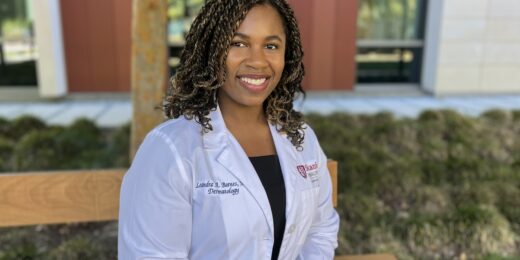Stanford Medicine researchers’ study of a ‘Food as Medicine’ model providing fresh produce and health education finds positive results for both food insecurity and chronic disease.
Category: Ethics
What’s the deal with microplastics, the material that ‘never goes away’?
Whether we know it, or like it, our bodies are polluted by tiny fragments of plastic that fail to break down in our earthly environment. What does that mean for our long-term health, and what can we do about it?
Meet the doctor tackling harassment, abuse, inequity in sports
Yetsa Adebodunde Tuakli-Wosornu, who wouldn’t be the person she is today without sports, led the charge for a new and improved International Olympic Committee consensus statement on interpersonal violence and safeguarding in sports.
Optimizing the telehealth experience could benefit patient, physician
Stanford Medicine's Kevin Schulman says digitally enabled care (DEC) would ease clinical workload and improve services for patients beyond virtual visits.
How supporting family, along with patients, became part of hospital’s mission
When the new Stanford Hospital opened five years ago, a carefully designed third-floor resource center gave for those caring for loved ones an important safe haven.
Biodesign cultivates community partnerships to broaden understanding of health equity
Biodesign program aims to ensure all trainees have a better understanding of health equity and appreciate the ways in which new technologies can widen or narrow the gaps in access to care.
A doctor, his cancer journey and a uniquely teachable moment
Bryant Lin has taken his diagnosis of stage IV ‘never-smoker’ lung cancer, which disproportionately affects those of Asian descent, and turned it into a medical school course. He hopes the world takes notes along with the students and Stanford Medicine community.
California excels at screening babies for main cause of childhood blindness
Vision damage from a complication of premature birth can be halted if it’s caught soon enough — and a California Perinatal Quality Care (CPQCC) and Stanford Medicine-led study shows the state’s screening process is helping close racial gaps.
From ballet to medicine, a love of stories has driven this bioethicist
Stanford Medicine bioethicist Tyler Tate found high levels of success in ballet, miming, acting, fencing and collegiate tennis. But his love of storytelling ultimately led him to medicine.
Is your asthma inhaler bad for the environment?
A team of physician-scientists calculated how much greenhouse gas is being emitted by inhalers prescribed for asthma and chronic obstructive pulmonary disease.
Paying back her people: New doctor has plans to return to her African village
Bongeka Zuma, graduate of Oprah Winfrey’s academy and Stanford School of Medicine, discusses her plans to advance medical care in her hometown.
What’s the deal with PFAS, aka ‘forever chemicals’?
The so-called ‘forever chemicals’ can stick around in the environment — and in our bodies. Scientists agree there is cause for concern. So what should we be doing to mitigate our health risks?
Talking about the need for Stanford Medicine’s new Skin of Color program
Leandra Barnes talks about being drawn to dermatology because of its non-inclusionary tendencies, giving her fertile soil to advocate for better care for people of color.
How the tobacco industry began funding courses for doctors
Earlier this year, the largest tobacco company in the world paid millions to fund continuing medical education courses on nicotine addiction —16,000 physicians and other health care providers took them.
How gaps in pediatric obesity treatment make access inequitable
Thomas Robinson wrote an editioral about the new guidelines, outlining what treatments got the top recommendation, and how gaps in the healthcare system make access to the best treatments inequitable.
From farmworker to doctor: A bold dream is reuniting her with her Indigenous community
Gianna Nino-Tapias knows the challenges of migrant farmworkers better than most. Her mother continues to pick blueberries daily. She plans to use her medical degree to help integrate and advocate for better health care.

















